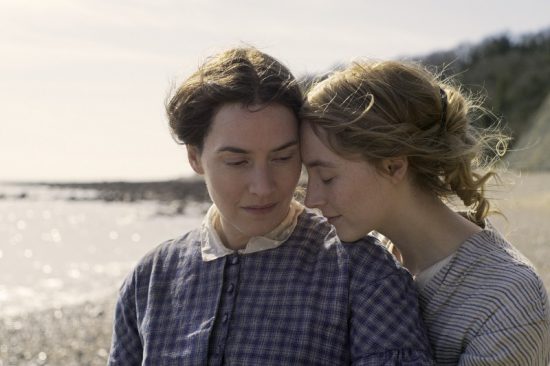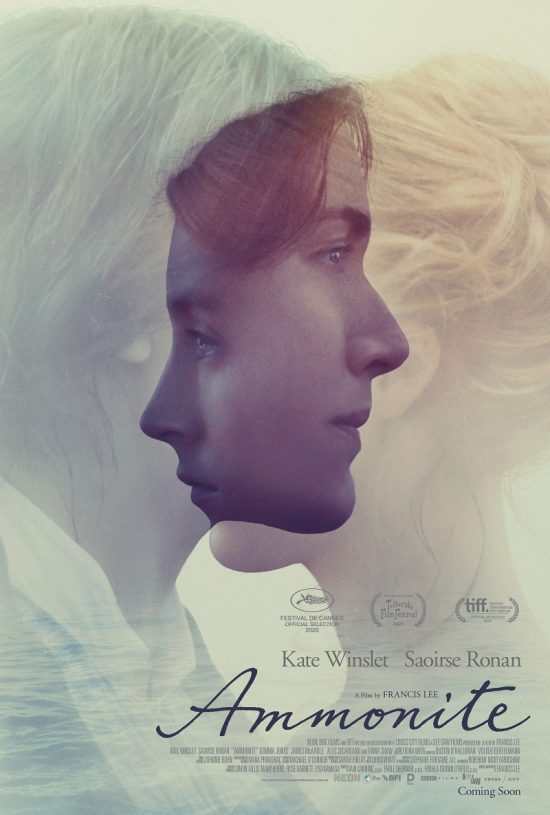Kate Winslet and Saoirse Ronan fall in love while hunting for fossils in the Ammonite trailer
In the 1840s, acclaimed self-taught paleontologist Mary Anning works alone on the wild and brutal Southern English coastline of Lyme Regis. The days of her famed discoveries behind her, she now hunts for common fossils to sell to rich tourists to support herself and her ailing widowed mother. When one such tourist, Roderick Murchison, arrives in Lyme on the first leg of a European tour, he entrusts Mary with the care of his young wife Charlotte, who is recuperating from a personal tragedy. Mary, whose life is a daily struggle on the poverty line, cannot afford to turn him down but, proud and relentlessly passionate about her work, she clashes with her unwanted guest. They are two women from utterly different worlds. Yet despite the chasm between their social spheres and personalities, Mary and Charlotte discover they can each offer what the other has been searching for: the realization that they are not alone. It is the beginning of a passionate and all-consuming love affair that will defy all social bounds and alter the course of both lives irrevocably.
Written and directed by Francis Lee, the film stars Kate Winslet, Saoirse Ronan, Gemma Jones, James McArdle, Alec Secareanu, and Fiona Shaw.
Francis Lee had this to say about writing the film.
I knew I never wanted to make a biopic of Mary Anning, but rather an imagined, respectful snapshot of someone’s life. I wanted to continue the work I had started in my first film ‘God’s Own Country’ around relationships and how we navigate ourselves within them, therefore I wanted to explore a story of Mary through the context of an intimate relationship. There is absolutely no evidence Mary ever had a relationship with anyone, whether that be heterosexual or same-sex, but I knew I wanted to give her a relationship that felt worthy of her. It is well documented that she had close friendships with women and in the society of the time, where women were the subjects of men and where Mary had been virtually written out of history because of her gender and social status, it didn’t feel right to give her a relationship with a man. At the same time, my ex-boyfriend had given me a research paper detailing letters between women in the 19th century -wonderful, passionate, intense, important relationships were described in these letters, so I decided Mary deserved a relationship with another woman. I was also fascinated by how these female relationships could flourish in this world –a world where the medical profession still believed women had no sexual pleasure organs and still 50 years before science categorised sexual orientation and then only for men.
I wanted to tell a heartfelt but stark love story. I wanted to capture those feelings of both trepidation and joy that come from something beginning. I wanted tosee how difficult it can be to be open and vulnerable enough to love and be loved, particularly if you’ve been badly scarred by a past relationship.
I wanted to explore what this relationship might mean to someone who has not only been socially and geographically isolated but who has had to close off to any emotional life, where you replace affection and intimacy with work and duty. Where you’ve been overlooked and ignored your whole life because of your gender and social class. Given this world, would Mary be able to access how she feels for Charlotte? Would she be able to let her guard down to allow the possibility of something new and wonderful to enter her life?
Ammonite hits US cinemas on 13th November 2020.
Thank you for supporting Live for Films (LFF) when you order using the link below. As an Amazon Associate LFF earns from qualifying purchases. If you are using an adblocker you will not see the link.











